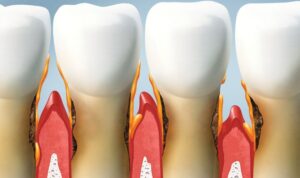Here is comprehensive information about sealants and oral health. We’ll explore dental sealants in detail in this post and discuss their importance for keeping teeth healthy. We can help you with everything from comprehending what sealants are to investigating their advantages and resolving typical issues.
1. What Are Dental Sealants?
Dental sealants are thin protective coatings that are placed on the molars and premolars, the rear teeth’s chewing surfaces. By acting as a barrier, these sealants protect teeth from food particles and germs that can cause cavities and decay.
2. How Do Sealants Work?
Sealants can be thought of as invisible barriers for your teeth. They smooth out and make cleaning the chewing surfaces simpler by filling up the deep pits and grooves. Sealants successfully lower the incidence of cavities by blocking pathogens and plaque from causing harm in these sensitive locations.
3. Who Can Benefit from Sealants?
Children and teens benefit most from sealants because their growing dental hygiene habits make them more susceptible to cavities. Adults, however, can also benefit from sealants, particularly if they have teeth with deep pits or grooves that are prone to decay.
4. When Should Sealants Be Applied?
When the permanent molars and premolars emerge, which typically happens between the ages of 6 and 14, sealants should ideally be placed at that time. On the other hand, sealants can help people of any age whose teeth have deep pits or grooves that need to be sealed.
5. Sealants vs. Cavities: The Ultimate Showdown
While tooth deterioration is the cause of cavities, sealants provide preventative protection against them. Sealants offer an additional line of protection against the germs that cause cavities, even though regular brushing and flossing are still essential for maintaining good dental hygiene.
6. The Application Process: Quick and Painless
During a typical dental appointment, sealants can be put in, which is a quick and painless process. After cleaning and drying the tooth surface, the sealant is applied to the enamel, where it adheres to the tooth rapidly.
7. Long-Term Effects: Lasting Protection
Sealants, when properly cared for, can endure for several years after application. They offer long-lasting defense against decay, maintaining the integrity of the teeth and reducing the need for later, expensive dental procedures.
8. Maintaining Sealants: Tips for Prolonged Durability
Even while sealants are quite effective, proper maintenance is necessary to make sure they last as long as possible. Steer clear of biting on hard things like pen caps or ice, and make sure you clean and floss your teeth regularly to maintain proper dental hygiene.
9. Common Myths Debunked
Dental sealants are the subject of various myths despite their demonstrated advantages. Sealants are harmless, non-toxic, and do not contain dangerous compounds like BPA, unlike what the general public believes. They also don’t get in the way of regular speech or eating.
10. Sealants: A Wise Investment in Your Dental Health
In conclusion, Dental sealants are a straightforward yet efficient means of guarding your teeth against cavities. You are making an investment in your smile’s integrity and long-term health when you get sealants. Consult your dentist right now about the advantages of sealants rather than waiting until it’s too late!






